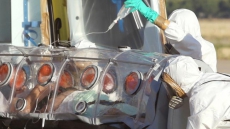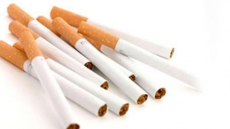A study co-authored by an Indian-origin professor has found a link between expanding waistlines and breast cancer risk for women between 20s and post-menopausal age.
Going up one skirt size every 10 years was associated with a 33 percent greater risk of developing breast cancer after the menopause, the findings of the Britain-based study showed.
Going up two skirt sizes in the same period was associated with a 77 percent greater risk.
The researchers estimated that the five year absolute risk of post-menopausal breast cancer rises from 1 in 61 to 1 in 51 with each increase in skirt size every 10 years.
"Although the exact mechanism of these relationships need to be better understood, there is a suggestion that body fat around the waist is more metabolically active than adipose tissue elsewhere," said Usha Menon from University College London in Britain.
"Extra fat is known to boost levels of the female hormone oestrogen, on which many breast cancer cells rely for fuel," the study authors added.
The findings were based on almost 93,000 women taking part in the UK Collaborative Trial of Ovarian Cancer Screening (UKCTOCS) in England.
The women were all aged over 50, had gone through menopause and did not have breast cancer when they entered the study between 2005 and 2010.
During the monitoring period, 1090 women developed breast cancer.
As expected, infertility treatment and family history of breast/ovarian cancer were significantly associated with a heightened risk of being diagnosed with the disease.
Increases in skirt size, however, emerged as the strongest predictor of breast cancer risk.
The study appeared in the journal BMJ Open.





